
QWorld Quantum Science Days 2022 | June 1-3, Online
QWorld Quantum Science Days 2022 (QSD 2022) is the second scientific meeting organized by QWorld (Association) to provide opportunities to the quantum community to present and discuss their research results at all levels (from short projects to thesis work to research publications), and to get to know each other.
The event is held online by using a Discord server and Zoom meetings between 10:00 and 18:00 (UTC) on June 1-3, 2022.
Registration & Certificate
- Our event is free, but the registration is mandatory.
- Any registered participant will be able to receive a certificate if she will attend at least half of sessions. (She must share an email address for joining our zoom meetings so that we can verify her participation.)
Click for registration form >>
QWorld Quantum Science Days 2022 is supported by Unitary Fund.
See the recordings of the event on our playlist >>
contact: qsd [at] qworld.net
Booklet | Program | Invited Speakers | List of talks | Calendar | Committees | Code of Conduct
Program
Wednesday JUNE 1
Session 1, 10:00 (UTC)
chair: Abuzer Yakaryilmaz
Nathan Shammah: Quantum Error Mitigation on NISQ computers and simulators
Vishal Sharma: OpenQAOA: An open-source SDK for quantum optimisation
Utkarsh Azad: qLEET: A Visualization Library for Parameterized Quantum Circuit
Marco Fellous Asiani: Limitations in quantum computing from resource constraints
Taha Rouabah: Compiling topological qubit braiding-gates for Fibonacci anyons topological quantum computation
Session 2, 13:00 (UTC)
chair: Aurél Gábris
Adam Glos: QIntern program by QWorld
Paweł Gora: QIntern/QResearch Talk: “Solving Vehicle Routing Problems using Quantum Computing”
Ashish Arya, Ludmila Botelho, Fabiola Cañete: Music Composition Using Quantum Annealing
Ludmila Botelho: Music Reduction with Quantum Annealing
Akash Kundu: Optimizing the Production of Test Vehicles using Hybrid Constrained Quantum Annealing
Session 3, 16:00 (UTC)
chair: Robert Fickler
Andrii Semenov: Photocounting measurements with realistic photon-number resolution
Zoltán György: Parallelization of single-qubit gates with bichromatic driving
Shrobona Bagchi: IID and problem specific random samples of quantum states from quantum Wishart distributions
Olga Okrut: Calculating Nash Equilibrium on Quantum Annealers
Thursday JUNE 2
Session 4, 10:00 (UTC)
chair: Zoltán Zimborás
Manal Khawasik: Secured Quantum two-bit commitment protocol
Stacey Jeffery: Quantum Walk Search Algorithms
Iskender Yalcinkaya: Disorder-free localization in quantum walks
Bence Bakó: Optimal QAOA design for the Max-K-Cut Problem
Adam Glos: Optimal QAOA design for the Traveling Salesman Problem
Session 5, 13:00 (UTC)
chair: Abuzer Yakaryilmaz (replacement for Özlem Salehi)
Laura Piispanen, Daria Anttila: Aalto Quantum Games course nurturing the creative minds of physicists and game creators
Oxana Mishina: Quantum Technology Education in Europe
Jibran Rashid: QCourses by QWorld
Daniel Strano: Metriq: a platform for community-driven quantum benchmarks
Zeki Seskir: The Landscape of the Quantum Start-up Ecosystem
Session 6, 16:00 (UTC)
chair: Aeysha Khalique
Justin Li: Bit Commitment Schemes from Non-Local Games
Hafiza Rumlah Amer: Genuine Multipartite Nonlocality Bound for AND
Muhammad Adeel: Quantum computational contextuality
Aleksander A. Lasek: Experimental observation of thermalisation with noncommuting charges
Friday JUNE 3
Session 7, 10:00 (UTC)
chair: Oxana Mishina
Elham Kashefi: Quantum Computing as a Service: Secure and Verifiable Multi-Tenant Quantum Data Centre
Shubhayan Sarkar: Certification of optimal randomness using quantum steering
Iris Michela Anna Paparelle: Introduction to quantum communication: a history of sharing secrets and keys
Iris Michela Anna Paparelle: Implementation and security analysis of continuous variable quantum secure direct communication channel
Sahar Ben Rached: Running Qiskit algorithms on a superconducting two-qubit quantum processor utilizing a custom hardware platform
Session 8, 13:00 (UTC)
chair: Marlou Slot
Shaeema Zaman: Quantum Games and Simulations
Laura Piispanen: Defining Quantum Games
Zeki Seskir: Quantum Games and Interactive Tools for Quantum Technologies Outreach and Education
Noora Heiskanen: Visualizing the Unseen: Game design and playful visuals in communicating quantum science
Lea Kopf: Endless Fun in high dimensions – A quantum card game
Session 9, 16:00 (UTC)
chair: Oxana Mishina
Valeria Sequino: Squeezing vacuum states for quantum noise reduction in gravitational wave detectors
Carlos L. Benavides-Riveros: Quantum Computing the Excitation Spectra of Quantum Many-Body Systems (via Purified Ensembles)
Marcin Jastrzębski: Measuring ultrafast light pulses with shearing interferometry
Muhammad Daud: A comparative study of network topologies in context of future quantum internet
Invited speakers
- Stacey Jeffery (CWI, QuSoft, & WIQD): Quantum Walk Search Algorithms
- Elham Kashefi (University of Edinburgh, CNRS Sorbonne Universite, & VeriQloud Ltd): Quantum Computing as a Service: Secure and Verifiable Multi-Tenant Quantum Data Centre
- Aleksander A. Lasek (QuICS & University of Maryland): Experimental observation of thermalisation with noncommuting charges
- Paweł Gora (QWorld, University of Warsaw, & Quantum AI Foundation): QIntern/QResearch Talk: “Solving Vehicle Routing Problems using Quantum Computing”
- Nathan Shammah (Unitary Fund): Quantum Error Mitigation on NISQ computers and simulators
- Shaeema Zaman Ahmed (Science Melting Pot): Quantum Games and Simulations
- Andrii Semenov (Bogolyubov Institute for Theoretical Physics, National Academy of Sciences of Ukraine): Photocounting measurements with realistic photon-number resolution
- Valeria Sequino (Università degli Studi di Napoli “Federico II”, INFN sezione di Napoli, membro della collaborazione Virgo): Squeezing vacuum states for quantum noise reduction in gravitational wave detectors
- Oxana Mishina (QTEdu CSA & Italian National Institute of Optics – CNR c/o SISSA): Quantum Technology Education in Europe
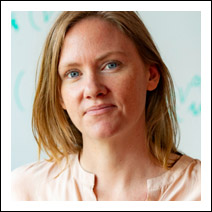
Stacey Jeffery (CWI, QuSoft, & WIQD)
Title: Quantum Walk Search Algorithms
See the recording of the talk on YouTube >>
Abstract: Grover’s quantum search algorithm and its generalization, amplitude amplification, are ubiquitous in quantum applications because they are easily applied in a number of contexts: essentially anywhere that a classical brute-force search might be used. In this tutorial, I will describe how classical random walk search algorithms can more generally be sped up by quantum computers to get faster search algorithms.
Stacey Jeffery has been a Senior Researcher at CWI since January 2017. Her main areas of interest are quantum algorithms and cryptographic protocols, and models of quantum computation. Before that, she was an IQIM Postdoctoral Fellow at the Institute for Quantum Information and Matter (IQIM) at Caltech. Stacey received her PhD from the University of Waterloo in 2014, where she was affiliated with the Institute for Quantum Computing (IQC), supervised by Michele Mosca, and informally co-advised by Frédéric Magniez. With Julia Cramer, Stacey co-founded WIQD (Women in Quantum Development), a professional network for women in all areas of quantum technology.
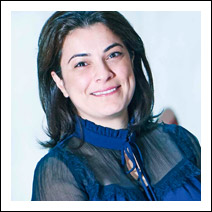
Elham Kashefi (University of Edinburgh, CNRS Sorbonne Universite, & VeriQloud Ltd)
Title: Quantum Computing as a Service: Secure and Verifiable Multi-Tenant Quantum Data Centre
See the recording of the talk on YouTube >>
Abstract: The development of quantum computing and quantum communication builds upon decades of analysis of their classical counterparts. The recent path taken by start-ups and large technological corporations points toward quantum technologies being mostly cloud-accessible. In future Quantum Data Centres using a combination of techniques in quantum and classical networking, as well as distributed quantum computing, will deliver the processing power of a many-qubit quantum computer by relying on a network of few-qubit processors. In this talk we present first steps towards a built-in design to provide service to multiple users/applications based on secure verifiable multi-party quantum computation.
Elham Kashefi is Professor of Quantum Computing at the School of Informatics, University of Edinburgh, and Directeur de recherche au CNRS at LIP6 Sorbonne Universite. She co-founded the fields of quantum cloud computing and quantum computing verification, and has pioneered a trans-disciplinary interaction of hybrid quantum-classical solutions from theoretical investigation all the way to actual experimental and industrial commercialisation (Co-Founder of VeriQloud Ltd). She has been awarded several UK, EU and US grants and fellowships for her works in developing applications for quantum computing and communication and was awarded the French 2021 les Margaret Intrapreneur award. She is the senior science team leader of the quantum computing and simulation hub in the UK.
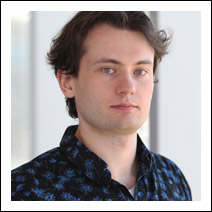
Aleksander A. Lasek (QuICS & University of Maryland)
Title: Experimental observation of thermalisation with noncommuting charges
See the recording of the talk on YouTube >>
Abstract: Quantum simulators have recently enabled experimental observations of quantum many-body systems’ internal thermalisation. Often, the global energy and particle number are conserved, and the system is prepared with a well-defined particle number—in a microcanonical subspace. However, quantum evolution can also conserve quantities, or charges, that fail to commute with each other. Noncommuting charges have recently emerged as a subfield at the intersection of quantum thermodynamics and quantum information. We initiate the experimental testing of its predictions, with a trapped-ion simulator. We prepare 6–15 spins in an approximate microcanonical subspace, a generalisation of the microcanonical subspace for accommodating noncommuting charges, which cannot necessarily have well-defined nontrivial values simultaneously. The noncommuting charges are the three spin components. We simulate a Heisenberg evolution using laser-induced entangling interactions and collective spin rotations. We report the first experimental observation of a novel non-Abelian thermal state, predicted by quantum thermodynamics. We observe reduced many-body thermalization in the presence of noncommuting charges. Quantum non-commutation effects are detectable and significant for relatively large realistic systems, despite decoherence. This work initiates the experimental testing of a subfield that has so far remained theoretical.
The preprint of the paper the talk is based on can be found on arxiv: https://arxiv.org/abs/2202.04652
Aleksander A. Lasek is a postdoc at QuICS and University of Maryland. After finishing his PhD in Cambridge, UK, supervised by Crispin Barnes, he moved to Maryland to work on quantum thermodynamics with Nicole Yunger-Halpern. He has developed a GPU-accelerated quantum simulator during his doctorate, and is interested in quantum computing, thermodynamics, information, and numerical simulations.
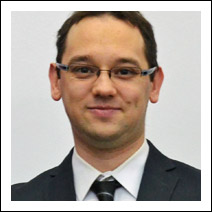
Paweł Gora (QWorld, University of Warsaw, and Quantum AI Foundation)
QIntern/QResearch Talk: Solving Vehicle Routing Problems using Quantum Computing
See the recording of the talk on YouTube >>
Abstract: In this talk, I will introduce a few approaches to solving the Vehicle Routing Problems and their variants using quantum computing. First, I will formally define the considered optimization problems and the corresponding QUBO formulations. Then, I will explain how these problems can be tackled using quantum annealing, QAOA and VQE, and present the results of experiments achieved in 2021 by an international group of students under my supervision within the QIntern program at QWorld. Finally, I will explain how we are planning to enhance these approaches, e.g., using graph coarsening and surrogate optimization, which is the goal of the current research carried out under the QResearch project.
Paweł Gora is a scientist, IT specialist and entrepreneur working mostly on the applications of AI and quantum computing, especially in transportation and medicine. Graduated from the Faculty of Mathematics, Informatics and Mechanics of the University of Warsaw (M.Sc. in Mathematics and M.Sc. in Computer Science) and is now a PhD Candidate at that Faculty. In the past, he worked as a software engineering intern or research intern at Microsoft, Google, CERN and IBM Research. He is one of the organizers of 2 meetups in Warsaw: Warsaw.ai and Warsaw Quantum Computing Group, and a member of the Board of QWorld and QPoland. He is also a founder and CEO of the “Quantum AI Foundation” aiming to support the development of AI and quantum computing. He also co-founded the “Quantum AI” group aiming to facilitate education in the area of applications of AI in quantum computing and quantum computing in AI. He received several awards, e.g., “Lider ITS” award for the best R&D work in the intelligent transportation systems domain in Poland. “MIT Technology Review” recognized him as one of 10 Top Polish Talents in the “MIT Innovators Under 35” competition. In 2017, he was also placed on the “NEW EUROPE 100” list of emerging technology stars in Eastern Europe. He also collaborates with several startups serving as a technical and business advisor.
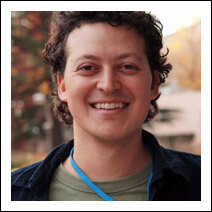
Nathan Shammah (Unitary Fund)
Title: Quantum Error Mitigation on NISQ computers and simulators
See the recording of the talk on YouTube >>
Abstract: In this talk we’ll review main topics in quantum error mitigation and how different techniques can be employed to reduce the error due to quantum noise in quantum intermediate scale quantum computing devices. We will show how Mitiq [1], an open-source toolkit in Python can be used to apply techniques such as zero noise extrapolation, probabilistic error cancellation, Clifford data regression, dynamical decoupling and more. We also analyze how quantum error mitigation is affected by time-correlated noise [2]. Finally, we discuss how other open-source software like qutip-qip [3] can be used to simulate hardware backends and several types of noise.
References:
[1] Mitiq: A software package for error mitigation on noisy quantum computers, Ryan LaRose, Andrea Mari, Sarah Kaiser, Peter J. Karalekas, Andre A. Alves, Piotr Czarnik, Mohamed El Mandouh, Max H. Gordon, Yousef Hindy, Aaron Robertson, Purva Thakre, Nathan Shammah, William J. Zeng, https://arxiv.org/abs/2009.04417
[2] Reducing the impact of time-correlated noise on zero-noise extrapolation, Kevin Schultz, Ryan LaRose, Andrea Mari, Gregory Quiroz, Nathan Shammah, B. David Clader, William J. Zeng, https://arxiv.org/abs/2201.11792
[3] Pulse-level noisy quantum circuits with QuTiP, Boxi Li, Shahnawaz Ahmed, Sidhant Saraogi, Neill Lambert, Franco Nori, Alexander Pitchford, and Nathan Shammah, Quantum 6, 630 (2022) https://quantum-journal.org/papers/q-2022-01-24-630/
Nathan Shammah is a theoretical physicist working in quantum technology and open-source software and is interested in the interplay between collective effects and dissipative dynamics in many-body quantum systems. He is the Chief Technology Officer of Unitary Fund, a non-profit organization that performs in-house research in quantum tech and supports open-source software projects. At Unitary Fund, he leads the technical staff (Unitary Labs), which performs research in quantum computing developing open-source software. Unitary Labs two main projects are Mitiq, a Python quantum error mitigation toolkit, and Metriq, a platform for the community-driven benchmarking of quantum computing systems. Nathan is also Visiting Scientist at the University of Milan, Italy and at RIKEN, Japan’s national lab. Previously, he was a postdoctoral research scientist at RIKEN, Japan, where he worked in the Theoretical Quantum Physics Laboratory. He holds a PhD in Physics from the University of Southampton, UK.
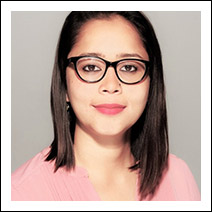
Shaeema Zaman Ahmed (Science Melting Pot)
Title: Quantum Games and Simulations
See the recording of the talk on YouTube >>
Abstract: In this talk, Shaeema Zaman Ahmed will introduce the use and impact of games and simulations in quantum physics education, outreach training, and quantum control research, which she explored during her PhD. One might wonder “why games and simulations?”. There are indeed a couple of good reasons. Firstly, research shows that there is potential in crowdsourcing solutions to scientific problems through games. Secondly, studies also show that games and simulations can enhance learning, as seen in many scientific disciplines. During her PhD, Shaeema took forward this arena of tools and applied it in quantum physics to explore: (a) how simulations can improve student learning of quantum mechanics [1], (b) perspectives on crowdsourcing solutions for controlling atoms through a game [2], and (c) the impact of the use of simulations in quantum physics outreach training [3].
References:
[1] Shaeema Zaman Ahmed et al. “Quantum composer: A programmable quantum visualization and simulation tool for education and research”. In: American Journal of Physics 89.3 (2021), pp. 307–316. https://aapt.scitation.org/doi/10.1119/10.0003396
[2] Jesper Hasseriis Mohr Jensen et al. “Crowdsourcing human common sense for quantum control”. In: Phys. Rev. Research 3 (1 2021), p. 013057. https://journals.aps.org/prresearch/abstract/10.1103/PhysRevResearch.3.013057
[3] Shaeema Zaman Ahmed et al. “A training programme for early-stage researchers that focuses on developing personal science outreach portfolios”. In: arXiv:2103.03109 (2021). https://arxiv.org/abs/2103.03109
Shaeema Zaman Ahmed is a physicist and science communicator with research experience that spans quantum physics education and outreach using games and simulations, astrophysics and quantum control. She has also worked outside academia as a scientific content creator and science communicator both in India and Denmark. After completing her PhD at Aarhus University, Denmark, she started her startup, Science Melting Pot, driven by her passion for science outreach and her concern for the challenges in achieving diversity in the physics community. Furthermore, she also co-mentored a quantum physics outreach training program in an EU-H2020 research project, QuSCo, during her PhD. She was one of the nominees for the Kvinder i Fysik (KIF) / Danish Women in Physics 2021 prize for her dedication to physics teaching and outreach by the KIF network.
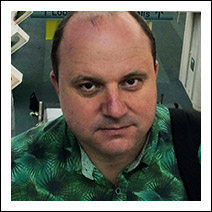
Andrii Semenov (Bogolyubov Institute for Theoretical Physics, National Academy of Sciences of Ukraine)
Title: Photocounting measurements with realistic photon-number resolution
See the recording of the talk on YouTube >>
Abstract: Photocounting is a basic measurement procedure used in many optical implementations of quantum-information technologies. It also plays a crucial role in a number of fundamental experiments. Modern photocounters enable to register even a single photon. However, distinguishing between adjacent numbers of photons is still a challenging task.
There are several experimental tricks resolving this problem at least approximately: splitting a light beam on several spatial or temporal modes and then analyzing each of them separately with on/off detectors, counting photocurrent pulses in a measurement time window, etc. The latter case is strictly impacted by the detector dead time. In the case of superconducting nanowire single-photon detectors (SNSPD) additional influence is given by the recovering time.
In this talk I will discuss how the photodetection theory is modified to properly describe realistic photon-number-resolving detectors, particularly the SNSPD. Our theory includes three features of such a detection: detector dead time, relaxation time, and impact of previous measurement time windows. We discuss applications of this theory to quantum-optical experiments. In particular, we demonstrate how these detectors can be used for identifying nonclassicality of photocounting statistics, experimental observartions of generalized Hong-Ou-Mandel experiments, etc. We also discuss possible applications of our theory to boson-sampling experiments.
Andrii Semenov received his doctoral degree from the Taras Shevchenko National University of Kyiv (Ukraine) in 2002. In 2018 he has received his habilitation degree from the University of Rostock (Germany). Between 2002 and 2019 Andrii Semenov was a postoctoral and senior researcher at the Institute of Physics of the National Academy of Sciences (NAS) of Ukraine and at the University of Rostock. Since 2019 he is a leading researcher at the Bogolyubov Institute for Theoretical Physics of the NAS of Ukraine. Andrii Semenov is also a part-time professor at the Taras Shevchenko National University of Kyiv and an associate professor at the Kyiv Academic University. The research activity of Andrii Semenov is mainly concentrated in the field of quantum optics. His main contributions are made in the theory of quantum-light transmission through the turbulent atmosphere, the theory of realistic photodetection, and the theory of nonclassical properties of radiation.
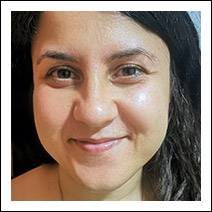
Valeria Sequino (Università degli Studi di Napoli “Federico II”, “INFN sezione di Napoli”, membro della collaborazione Virgo)
Title: Squeezing vacuum states for quantum noise reduction in gravitational wave detectors
See the recording of the talk on YouTube >>
Abstract: In recent years, interferometric gravitational wave detectors have been demonstrated to be able to measure very small distance variations induced by gravitational radiation. One of the main limits for such detectors is the so-called “quantum noise” due to vacuum fluctuations that enter the interferometer. This noise manifests itself as radiation pressure noise and as shot noise, depending on the observation frequency. The adopted solution for quantum noise reduction is the injection of squeezed vacuum states through the output port of the interferometer. This technique has been used during the last observation run in order to reduce shot noise; being the radiation pressure noise not disturbing the detector sensitivity.
At present a new generation of gravitational wave detectors are in phase of commissioning. Many upgrades have been done and this much improved the sensitivity in the low frequency part of the detection bandwidth, where radiation pressure noise now dominates. In order to have a broadband quantum noise reduction, a frequency-dependent squeezing technique has been implemented.
In this talk, I will introduce the problem of quantum noise in gravitational wave detectors, mostly considering that for such detectors audio-frequency squeezed vacuum states are needed. Moreover I will focus on the techniques used during the last observation run for Advanced Virgo and the one presently under commissioning for Advanced Virgo Plus.
References:
• CavesCM 1981 Quantum-mechanical noise in an interferometer Phys. Rev.D23 1693
• Acernese F et al 2019 Increasing the astrophysical reach of the advanced virgo detector via the application of squeezed vacuum states of light Phys. Rev. Lett. 123 231108
• TseMet al 2019 Quantum-enhanced advanced ligo detectors in the era of gravitational-wave astronomy Phys. Rev. Lett. 123 231107
• Zhao Y et al 2020 Frequency-dependent squeezed vacuum source for broadband quantum noise reduction in advanced gravitationalwave detectors Phys. Rev. Lett. 124 171101
• Sequino, Valeria. “Quantum noise reduction in Advanced Virgo.” Physica Scripta 96.10 (2021): 104014.
Valeria Sequino
I am a member of the Virgo collaboration starting from 2012 and, at present, I work at the University of Napoli “Federico II”. Previously I worked at the University of Rome “Tor Vergata”, where I also got my PhD, and for the Istituto di Fisica Nucleare (INFN) in Rome and Genova.
My career is fully devoted to quantum noise reduction in gravitational wave detectors, at present I am working for the commissioning of Advanced Virgo Plus and for the Einstein Telescope project.
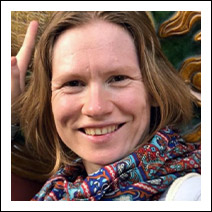
Oxana Mishina (QTEdu CSA & Italian National Institute of Optics – CNR c/o SISSA)
Title: Quantum Technology Education in Europe
See the recording of the talk on YouTube >>
Abstract: We are currently living through the Second Quantum Revolution, where the scientific knowledge based on Quantum Theory is used to develop new technologies. In 2018 European Commission launched the Quantum Flagship initiative to support the technology transfer from the research laboratories to industry. This challenging transition requires bringing together research institutes, universities, companies, and policy makers in a collaborative ecosystem. Its fundamental ingredient is education that starts from promoting the citizen awareness and engagement and continues with training programs for pupils, students and professionals. The European quantum technology community proposed a well defined education agenda [1] and the Coordination and Support Action for Quantum Technology Education (QTEdu CSA) was born within the Quantum Flagship to respond to its needs. I present the work done by the QTEdu CSA team that covers the building up the education community network, online repositories creation, construction of a competence framework for quantum technologies, and the development of pilot programs to support pan-European synergies. The QTEdu community keeps growing and welcomes new participants [2]!
References:
[1] Strategic Research Agenda y Quantum Flagship: Education and Trainig, p. 106. https://qt.eu//app/uploads/2020/04/Strategic_Research-_Agenda_d_FINAL.pdf
[2] QTEdu community portal – https://qtedu.eu/
About Oxana:
- QT Research in Denmark, France, and Germany: Theoretical physicist in the quantum optics experimental labs of Niels Bohr Institute Quantop Lab (Copenhagen, DK) and Kastler-Brossel Laboratory (Paris, FR), and in a theoretical group at Saarland University (Saarbreucken, DE).
- Quantum ambassador at schools in Germany: Outreach and school labs from Saarland University (Saarbruecken, DE).
- Education Research in Germany: Physics education researcher at TU Braunschweig (Braunschweig, DE), collaborator at UniTS (Trieste, It).
- Coordination and support for QT education in Europe and Italy: Senior fellow at the National Institute of Optics – CNR (Trieste, IT) working in QFlag CSA and QTEdu CSA.
- Study: Graduated in Nuclear Physics for medical applications, and Ph.D. in Physics and mathematics at SPbSTU (St. Petersburg, RU).
List of talks
[In their submitted order]
- Quantum Computing the Excitation Spectra of Quantum Many-Body Systems (via Purified Ensembles)
Carlos L. Benavides-Riveros, Lipeng Chen, Christian Schilling, Sebastián Mantilla, Stefano Pittalis (Max Planck Institute for the Physics of Complex Systems; Ludwig-Maximilians-Universität München; CNR-Istituto Nanoscienze, Modena)
See the recording of the talk on YouTube >> - Certification of optimal randomness using quantum steering
Shubhayan Sarkar, Jakub J. Borkała, Chellasamy Jebarathinam, Owidiusz Makuta, Debashis Saha, Remigiusz Augusiak (Center for Theoretical Physics, Polish Academy of Sciences, Warsaw)
See the recording of the talk on YouTube >> - Music Composition Using Quantum Annealing
Ashish Arya, Ludmila Botelho, Fabiola Cañete, Dhruvi Kapadia, Özlem Salehi (ICT Academy, Indian Institute of Technology; Institute of Theoretical and Applied Informatics, Polish Academy of Sciences; Benemerita Universidad Autonoma de Puebla, Mexico)
See the recording of the talk on YouTube >> - Limitations in quantum computing from resource constraints
Marco Fellous Asiani, Jing Hao Chai, Robert S. Whitney, Alexia Auffèves, Hui Khoon Ng (CNRS; Centre for Quantum Technologies, Singapore; Yale-NUS College, Singapore)
See the recording of the talk on YouTube >> - The Landscape of the Quantum Start-up Ecosystem
Zeki Seskir, Ramis Korkmaz, Arsev Umur Aydinoglu (KIT-ITAS; METU)
See the recording of the talk on YouTube >> - Quantum Games and Interactive Tools for Quantum Technologies Outreach and Education
Zeki Seskir (KIT-ITAS), et. al.
See the recording of the talk on YouTube >> - Bit Commitment Schemes from Non-Local Games
Claude Crépeau, Justin Li (McGill University; Optable Inc)
See the recording of the talk on YouTube >> - Endless Fun in high dimensions – A quantum card game
Lea Kopf, Markus Hiekkamäki, Shashi Prabhakar and Robert Fickler (Tampere University, Finland; Quantum Science and Technology Laboratory, Ahmedabad, India) - Compiling topological qubit braiding-gates for Fibonacci anyons topological quantum computation
Taha Rouabah, Nacer Eddine Belaloui, Abdellah Tounsi, Muhammad Masud Laouamri, Achour Benslama (University of Constantine 1, Algeria) - Measuring ultrafast light pulses with shearing interferometry
Marcin Jastrzębski, Stanisław Kurzyna, Michał Lipka, Michał Parniak (Centre for Quantum Optical Technologies (QOT); University of Warsaw)
See the recording of the talk on YouTube >> - A comparative study of network topologies in context of future quantum internet
Muhammad Daud, Aeysha Khalique, Peter P. Rohde (National University of Science and Technology, Pakistan; University of Technology Sydney)
See the recording of the talk on YouTube >> - IID and problem specific random samples of quantum states from quantum Wishart distributions
Han Rui, Weijun Li, Shrobona Bagchi, Hui Khoon Ng, Berthold Georg Englert (Center for Quantum Technologies, Singapore; University of Oxford; Korea Institute of Science and Technology, Seoul; Yale NUS College)
See the recording of the talk on YouTube >> - OpenQAOA: An open-source SDK for quantum optimisation
Vishal Sharma, Leonardo Disilvestro, Shao-Hen Chiew, Nur Shahidee, Ezequiel Rodriguez Chiacchio (Entropica Labs, Singapore)
See the recording of the talk on YouTube >> - qLEET: A Visualization Library for Parameterized Quantum Circuit
Utkarsh Azad, Animesh Sinha (International Institute of Information Technology Hyderabad)
See the recording of the talk on YouTube >> - Music Reduction with Quantum Annealing
Ludmila Botelho, Özlem Salehi (Institute of Theoretical and Applied Informatics, Polish Academy of Sciences)
See the recording of the talk on YouTube >> - Quantum computational contextuality
Muhammad Adeel, Jibran Rashid (Institute of Business Administration, Karachi)
See the recording of the talk on YouTube >> - Optimizing the Production of Test Vehicles using Hybrid Constrained Quantum Annealing
Adam Glos, Akash Kundu, Özlem Salehi (Institute of Theoretical and Applied Informatics, Polish Academy of Sciences)
See the recording of the talk on YouTube >> - Disorder-free localization in quantum walks
B. Danaci, Iskender Yalcinkaya, B. Cakmak, G. Karpat, S. P. Kelly, A. L. Subasi (Istanbul Technical University, Czech Technical University in Prague, Bahcesehir University, Izmir University of Economics, Johannes Gutenberg University of Mainz)
See the recording of the talk on YouTube >> - Calculating Nash Equilibrium on Quantum Annealers
Olga Okrut, Keith Cannon, Kareem H. El-Safty, Nada Elsokkary, Faisal Shah Khan (Dark Star Quantum Lab, Inc.)
See the recording of the talk on YouTube >> - Implementation and security analysis of continuous variable quantum secure direct communication channel
Iris Michela Anna Paparelle, Alessandro Zavatta, Matteo Paris (CNR-INO, UniMi) - Optimal QAOA design for the Max-K-Cut Problem
Bence Bakó, Adam Glos, Özlem Salehi, Zoltán Zimborás (Eötvös Loránd University, Budapest; Institute of Theoretical and Applied Informatics, Polish Academy of Sciences; Wigner Research Centre for Physics, Budapest) - Secured Quantum two-bit commitment protocol
Manal Khawasik, Wagdy Elsayed, Magdi Rashad, Ahmed Younes (Faculty of Science, Alexandria University; Faculty of Computers and Information Systems, Mansoura University, Egypt)
See the recording of the talk on YouTube >> - Optimal QAOA design for the Traveling Salesman Problem
Bence Bakó, Adam Glos, Özlem Salehi, Zoltán Zimborás (Eötvös Loránd University, Budapest; Institute of Theoretical and Applied Informatics, Polish Academy of Sciences; Wigner Research Centre for Physics, Budapest) - Genuine Multipartite Nonlocality Bound for AND
Hafiza Rumlah Amer, Jibran Rashid (Institute of Business Administration, Karachi)
See the recording of the talk on YouTube >> - Introduction to quantum communication: a history of sharing secrets and keys
Iris Michela Anna Paparelle (CNR-INO, Trieste)
See the recording of the talk on YouTube >> - Parallelization of single-qubit gates with bichromatic driving
Zoltán György, András Pályi, Gábor Széchenyi (Eötvös University, Budapest; Budapest University of Technology and Economics)
See the recording of the talk on YouTube >> - Defining Quantum Games
Laura Piispanen, Annakaisa Kultima (Aalto University), et. al.
See the recording of the talk on YouTube >> - Visualizing the Unseen: Game design and playful visuals in communicating quantum science
Noora Heiskanen (Aalto University of Art, design and architecture)
See the recording of the talk on YouTube >> - Running Qiskit algorithms on a superconducting two-qubit quantum processor utilizing a custom hardware platform
Sahar Ben Rached, Oliver Sander, Richard Gebauer, Mourad Telmini (University of Tunis El Manar; Karlsruhe Institute of Technology)
See the recording of the talk on YouTube >> - QIntern program by QWorld
Adam Glos (QWorld)
See the recording of the talk on YouTube >> - QCourses by QWorld
Jibran Rashid (QWorld)
See the recording of the talk on YouTube >> - Metriq: a platform for community-driven quantum benchmarks
Daniel Strano, Vincent Russo (Unitary Fund)
See the recording of the talk on YouTube >> - Aalto Quantum Games course nurturing the creative minds of physicists and game creators
Laura Piispanen, Daria Anttila, Annakaisa Kultima (Aalto University, Finland; University of Turku, Finland)
See the recording of the talk on YouTube >>
Event Calendar
Call for contributed talks
Scope: All aspects of quantum information science and technology.
We welcome contributed talk submissions reporting on original research results, as well as reporting on internship projects (e.g, QIntern 2021), ongoing and completed BSc and MSc thesis works, and open-source software. We also welcome outreach talks. As many talks as possible will be selected for oral presentations. There will be no poster session. Previously published or presented talks, preferable recent ones, are welcome to be submitted.
There will be an abstract booklet available to the participants before the meeting.
Submissions are closed on May 8, 2022 Wednesday, May 11, 2022 (AoE).
Submit your work by filling the following Google form, and (i) either upload a manuscript or an extended abstract of around two pages through the form (ii) or provide a link (e.g., arXiv or DOI) to your (published) work.
Committees
Program committee
Robert Fickler (Tampere University, Finland)
Adam Glos (QWorld & Institute of Theoretical and Applied Informatics, Poland)
Aeysha Khalique (QPakistan & National University of Sciences and Technology, Islamabad)
Oxana Mishina, co-chair (National Institute of Optics – CNR, Trieste, Italy)
Andras Palyi (QHungary & Budapest University of Technology and Economics)
Laura Piispanen (Aalto University, Finland)
Özlem Salehi (QWorld & Institute of Theoretical and Applied Informatics, Poland)
Travis L. Scholten (IBM Quantum)
Nathan Shammah (Unitary Fund)
Marlou Slot (Womanium & Georgetown University / National Institute of Standards and Technology)
Abuzer Yakaryilmaz, co-chair (QWorld & University of Latvia)
Organizing committee
Adam Glos, co-chair (QWorld & Institute of Theoretical and Applied Informatics, Poland)
Akash Kundu (QIndia & Institute of Theoretical and Applied Informatics, Poland)
Shantanu Misra (QWorld)
Agnieszka Wolska (QWorld)
Abuzer Yakaryilmaz, co-chair (QWorld & University of Latvia)
Code of conduct
Based on the codes of conduct by Geek Feminism Wiki & TQC.
Our event is dedicated to providing a harassment-free meeting experience for everyone, regardless of gender, gender identity and expression, sexual orientation, disability, physical appearance, body size, race, age or religion. We do not tolerate harassment of event participants in any form. Sexual language and imagery is not appropriate for any event venue, including talks. Event participants violating these rules may be sanctioned or expelled from the workshop at the discretion of the workshop organizers.
Harassment includes, but is not limited to:
- Offensive comments related to gender, gender identity and expression, sexual orientation, disability, physical appearance, body size, race, age, religion.
- Sexual images in public spaces
- Deliberate intimidation, stalking, or following
- Harassing photography or recording
- Sustained disruption of talks or other events
- Inappropriate physical contact
- Unwelcome sexual attention
- Advocating for, or encouraging, any of the above behavior
- Participants asked to stop any harassing behavior are expected to comply immediately.
If a participant engages in harassing behavior, event organizers retain the right to take any actions to keep the meeting a welcoming environment for all participants. This includes warning the offender or expulsion from the event.
Event organizers may take action to redress anything designed to, or with the clear impact of, disrupting the event or making the environment hostile for any participants.
We expect participants to follow these rules at all event venues and event-related social activities. We think people should follow these rules outside event activities too!
Reporting
If someone makes you or anyone else feel unsafe or unwelcome, please report it as soon as possible. Harassment and other code of conduct violations reduce the value of our event for everyone. We want you to be happy at our event. People like you make our event a better place.
You can make a personal report by contacting any of the organizers.
Our team will be happy to help you to feel safe for the duration of the event. We value your attendance.
